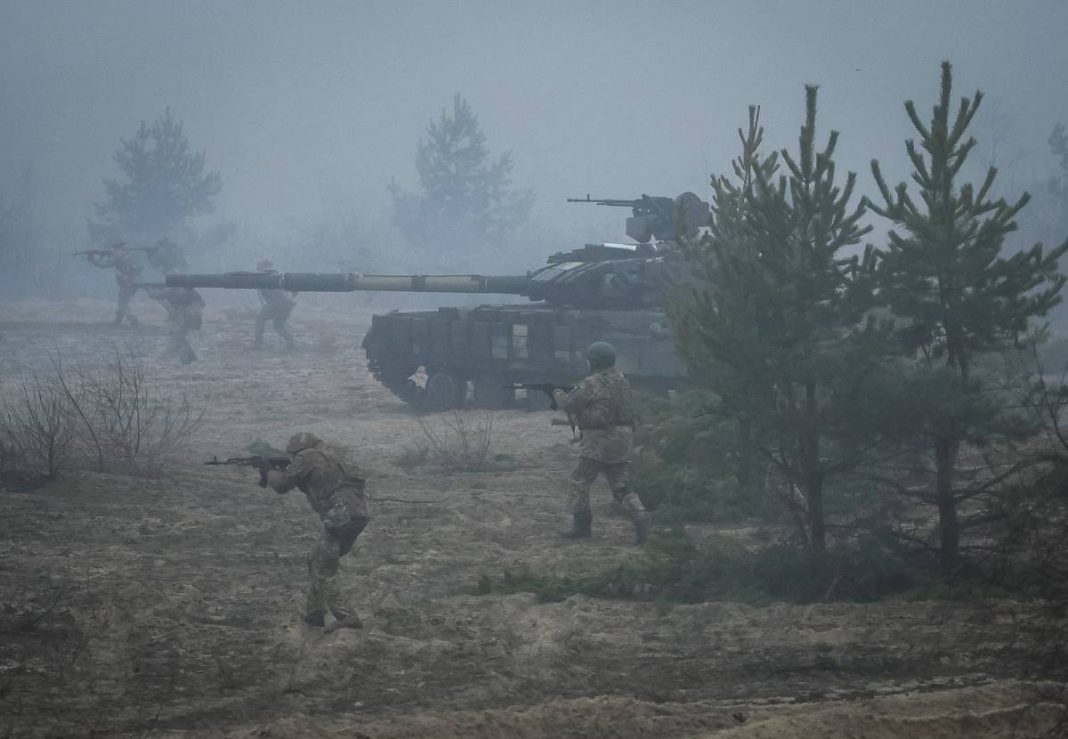A two-thirds majority of the UN body, who met for a special session of the UN General Assembly on Thursday, voted — 141 for and 7 against while the rest, including Iran, China and India, chose abstention — in favor of a resolution that demanded Russian troops’ withdrawal from Ukraine.
The resolution called for Russia to “immediately, completely and unconditionally” pull out its forces from Ukraine, and shift the Russian government’s focus on diplomatic means to establish a lasting peace between Moscow and Kiev.
The non-binding resolution, which was set forth by Germany, carries symbolic weight by signifying Russia’s continued isolation on the world stage ahead of Friday’s first anniversary of Russia’s February 24, 2022 start of a special military operation in pro-Russia speaking regions of eastern Ukraine with the aim of de-Nazifying the Donbas and other pro- Moscow areas in the former Soviet country.
Iran’s ambassador and permanent representative to the United Nations (UN) expressed Tehran’s readiness to establish a group of cross-regional countries to help end the conflict in Ukraine.
Amir Saeed Iravani made the remarks while addressing the UN General Assembly’s eleventh emergency special session on the Ukraine conflict on Thursday.
He said that Tehran “supports the idea of leveraging the Secretary General’s capacity, as mandated by the UN Charter, to establish a cross-regional group of independent, competent, impartial countries. The Islamic Republic of Iran is ready to contribute to this process.”
This can facilitate dialogue and help find a way out of the current “impasse”, he added.
Iravani stressed that Iran’s position with regard to the war in Ukraine has not changed. “We are steadfast in our commitment to upholding the principles and purposes enshrined in the Charter of the United Nations, including the principles of sovereign equality and territorial integrity of States.”
“We urge all parties to fully comply with their obligation on the international humanitarian law including taking constant precautions to protect civilians and critical infrastructure and facilitating access to safe and unfettered access to humanitarian aid for those in need,” the diplomat continued.
Noting that the ongoing conflict is “detrimental to both parties as neither can earn any long-term advantage”, he added that “it is crucial for all involved parties to abandon the military ambitions and prioritize finding a peaceful diplomatic resolution.”
Iravani also pointed to the need to solve the root causes of the conflict.
“By prioritizing dialogue and diplomacy and addressing the underlying cause of the conflict we can take a crucial step toward achieving a solution that not only mitigates the devastating humanitarian part but also restores regional stability and security,” he said.
“As a first step, we call for an immediate and comprehensive ceasefire, coupled with the provision of humanitarian aid to those in need, which should take precedence over all else,” the diplomat stated.
The diplomat also criticized the draft of the proposed resolution, saying, “unfortunately, the proposed text falls short of comprehensively and impartially addressing all aspects of the issue and fails to acknowledge the conditions and provocations that have contributed to the crisis.”
He noted that the actions and policies of certain sponsors of this resolution raise doubts about the political will to resolve the dispute peacefully.
UN Secretary-General Antonio Guterres called the Russian campaign an “affront to our collective conscience.”
Guterres described the anniversary of Russia’s military ops as “a grim milestone for the people of Ukraine and for the international community.”
On February 24, 2022, President Vladimir Putin stated that in response to a request by the heads of the Donbass republics he had made a decision to carry out a special military operation. The Russian leader stressed that Moscow had no plans of occupying Ukrainian territories.
The US, the EU, the UK and a number of other states have imposed sanctions against Russian legal entities and individuals. They also increased supplies of weapons to the Ukrainian authorities.
Moscow has repeatedly condemned the US and its NATO allies for delivering arms to Ukraine, insisting that the inflow of supplies will only prolong the conflict. The Kremlin has also stressed Western weapons are considered a legitimate target once they enter Ukrainian territory.
